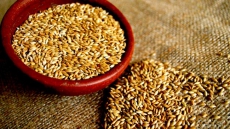Joining the growing list of studies that are trying to pinpoint reasons why novel coronavirus is killing more senior adults globally, researchers from Louisiana State University in the US have proposed a novel explanation which is related to the daily medications for cardiovascular diseases taken by most of the elderly.
According to the study, published in the Journal of Travel Medicine, SARS-CoV virus which caused the SARS (Severe Acute Respiratory Syndrome) outbreak in 2003 and the new SARS-CoV-2 which causes COVID-19 pandemic, bind to "angiotensin-converting enzyme 2" (ACE2) receptors in the lower respiratory tracts of infected patients to gain entry into the lungs.
Angiotensin-converting-enzyme inhibitors are drugs used primarily for the treatment of high blood pressure and heart failure. They work by causing relaxation of blood vessels as well as a decrease in blood volume, which leads to lower blood pressure and decreased oxygen demand from the heart.
"Angiotensin-converting enzyme inhibitors (ACEIs) and angiotensin receptor blockers (ARBs) are highly recommended medications for patients with cardiovascular diseases including heart attacks, high blood pressure, diabetes and chronic kidney disease to name a few," said study researcher James Diaz from Louisiana State University.
According to the researchers, viral pneumonia and potentially fatal respiratory failure may result in susceptible persons after 10-14 days.
"Many of those who develop these diseases are older adults. They are prescribed these medications and take them every day," Diaz added.
According to the researchers, the study in experimental models has shown an increase in the number of ACE2 receptors in the cardiopulmonary circulation after intravenous infusions of ACE inhibitors.
"Since patients treated with ACEIs and ARBS will have increased numbers of ACE2 receptors in their lungs for coronavirus S proteins to bind to, they may be at increased risk of severe disease outcomes due to SARS-CoV-2 infections," explained Diaz.
According to the researchers, this hypothesis is supported by a recent descriptive analysis of 1,099 patients with laboratory-confirmed COVID-19 infections treated in China during the reporting period, December 11, 2019, to January 29.
This study reported more severe disease outcomes in patients with hypertension, coronary artery disease, diabetes and chronic renal disease.
All patients with the diagnosis noted met the recommended indications for treatment with ACEIs or ARBs.
Diaz said that two mechanisms may protect children from COVID-19 infections -- cross-protective antibodies from multiple upper respiratory tract infections caused by the common cold-causing alpha coronaviruses, and fewer ACE2 receptors in their lower respiratory tracts to attract the binding S proteins of the beta coronaviruses.
The researchers recommended future case-control studies in patients with COVID-19 infections to further confirm chronic therapy with ACEIs or ARBs may raise the risk for severe outcomes.
"Patients treated with ACEIs and ARBs for cardiovascular diseases should not stop taking their medicine, but should avoid crowds, mass events, ocean cruises, prolonged air travel, and all persons with respiratory illnesses during the current COVID-19 outbreak in order to reduce their risks of infection," Diaz suggested.


